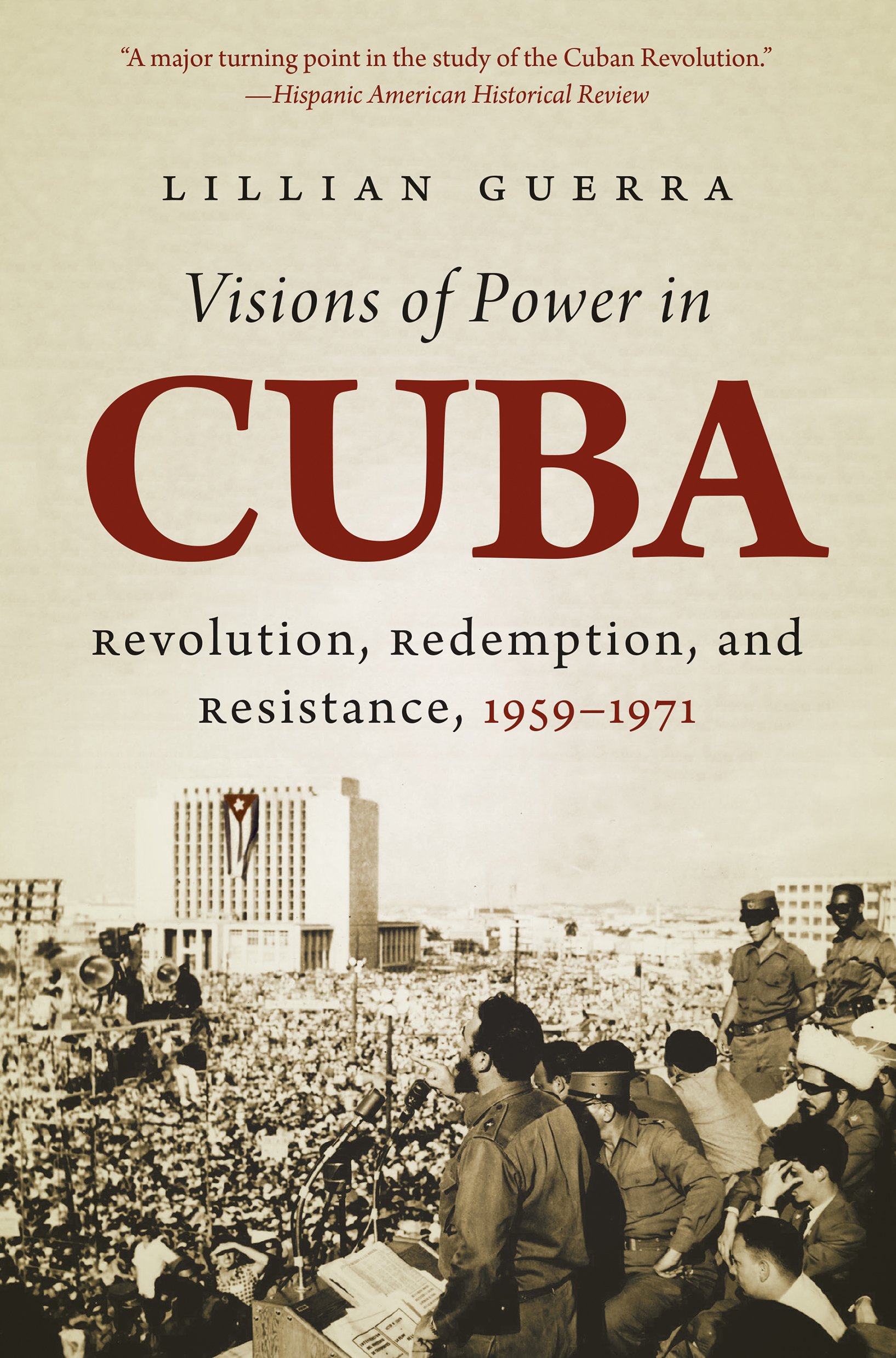
Visions of Power in Cuba
Revolution, Redemption, and Resistance, 1959-1971
Lillian Guerra
Lillian Guerra, Associate Professor of History. Available from The University of North Carolina Press.
In the tumultuous first decade of the Cuban Revolution, Fidel Castro and other leaders saturated the media with altruistic images of themselves in a campaign to win the hearts of Cuba’s six million citizens. In Visions of Power in Cuba, Lillian Guerra argues that these visual representations explained rapidly occurring events and encouraged radical change and mutual self-sacrifice.
Mass rallies and labor mobilizations of unprecedented scale produced tangible evidence of what Fidel Castro called “unanimous support” for a revolution whose “moral power” defied U.S. control. Yet participation in state-orchestrated spectacles quickly became a requirement for political inclusion in a new Cuba that policed most forms of dissent. Devoted revolutionaries who resisted disastrous economic policies, exposed post-1959 racism, and challenged gender norms set by Cuba’s one-party state increasingly found themselves marginalized, silenced, or jailed. Using previously unexplored sources, Guerra focuses on the lived experiences of citizens, including peasants, intellectuals, former prostitutes, black activists, and filmmakers, as they struggled to author their own scripts of revolution by resisting repression, defying state-imposed boundaries, and working for anti-imperial redemption in a truly free Cuba.
Lillian Guerra is associate professor of Cuban and Caribbean history at the University of Florida and author of The Myth of José Martí: Conflicting Nationalisms in Early Twentieth-Century Cuba and Popular Expression and National Identity in Puerto Rico.